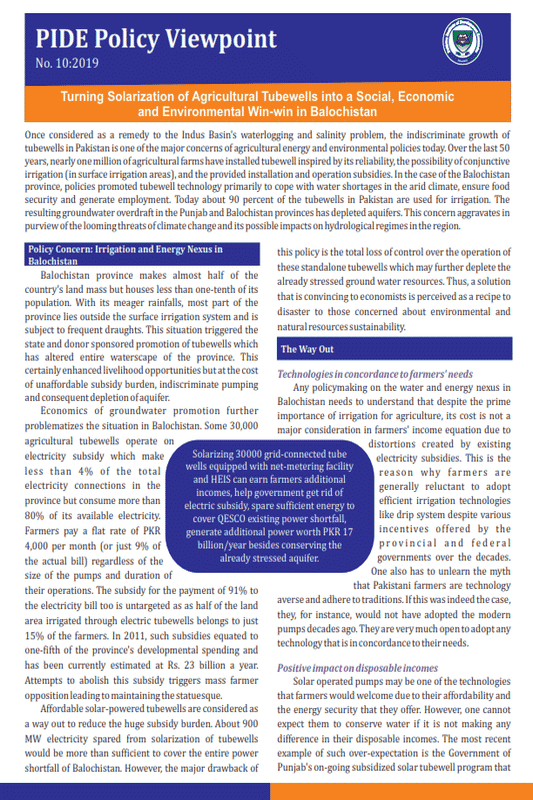
Pakistan Institute of Development Economics
- Home
Our Portals
MenuMenuMenuMenuMenuMenuMenu - ResearchMenuMenuMenuMenuMenuMenuMenu
- Discourse
- The PDR
- Our Researchers
- Academics
- Degree Verification
- Thesis Portal
- Our Portals
Turning Solarization Of Agricultural Tubewells Into A Social, Economic And Environmental Win Win In Balochistan
Once Considered As A Remedy To The Indus Basin’s Waterlogging And Salinity Problem, The Indiscriminate Growth Of Tubewells In Pakistan Is One Of The Major Concerns Of Agricultural Energy And Environmental Policies Today. Over The Last 50 Years, Nearly One Million Of Agricultural Farms Have Installed Tubewell Inspired By Its Reliability, The Possibility Of Conjunctive Irrigation (In Surface Irrigation Areas), And The Provided Installation And Operation Subsidies. In The Case Of The Balochistan Province, Policies Promoted Tubewell Technology Primarily To Cope With Water Shortages In The Arid Climate, Ensure Food Security And Generate Employment. Today About 90 Percent Of The Tubewells In Pakistan Are Used For Irrigation. The Resulting Groundwater Overdraft In The Punjab And Balochistan Provinces Has Depleted Aquifers. This Concern Aggravates In Purview Of The Looming Threats Of Climate Change And Its Possible Impacts On Hydrological Regimes In The Region.



